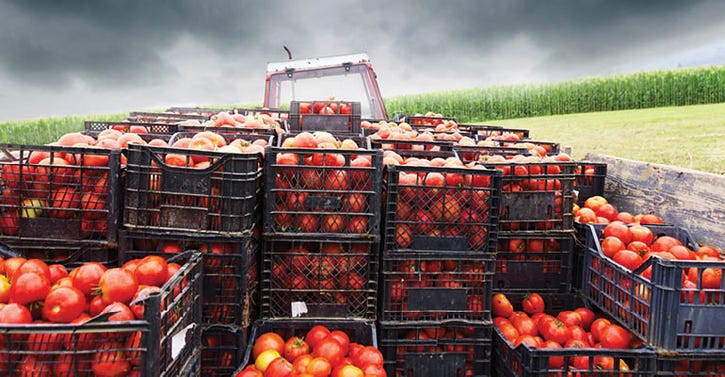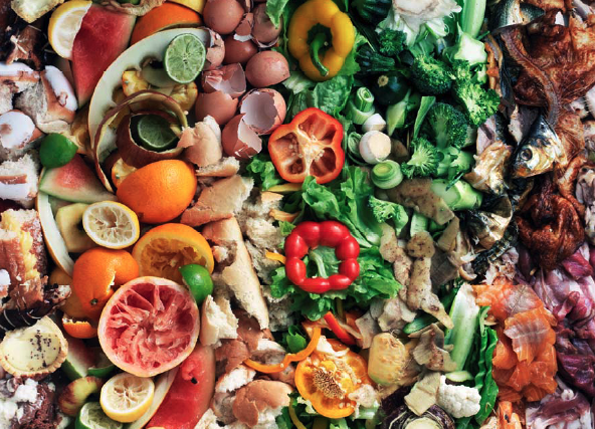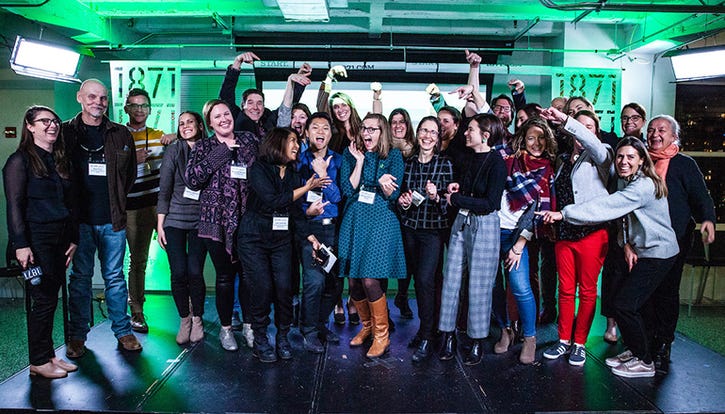A Conversation with ReFED’s Interim Executive Director
Dana Gunders has been named ReFED’s interim executive director following the departure of Chris Cochran.

Rethink Food Waste Through Economics and Data (ReFED) recently announced that Dana Gunders has been named interim executive director following the departure of Chris Cochran, the organization’s first executive director and a 2019 Waste360 40 Under 40 award recipient.
Gunders has spent a large portion of her career bringing to light just how much food is wasted across the country. For nearly a decade, she was a senior scientist at the Natural Resources Defense Council (NRDC), and shortly after leaving there, she launched Next Course LLC to strategically advise on the topic.
She also authored the “Waste Free Kitchen Handbook” as well as notable industry reports, launched the Save the Food campaign and is a founding board member of ReFED.
We recently spoke with Gunders about her new role as interim executive director at ReFED, her short- and long-term goals for the organization and what ReFED will be focusing on in 2020.
Waste360: Tell us about your background and your time at NRDC.
Dana Gunders: I joined NRDC in 2009, and I was there to work on a sustainable agriculture project with the fresh produce industry. As part of that, I was tasked with covering waste in agriculture. At the time, that meant looking at irrigation piping, plastic and other stuff that winds up resulting in agriculture.
While doing that work, I started stumbling upon these numbers around how much food was going to waste. I would go back to our industry partners and say, “Wait a minute, this data is showing that 40 percent of food is getting wasted and 25 percent of water is going into growing that food. Does that sound right?” They agreed that sounded correct, and that’s really what sparked the fire for me that there was this whole aspect of the food system we weren’t considering.

colorful-produce.jpg
I then started to focus on helping farmers be more efficient with their water use and fertilizer use. I also helped them look at the ultimate use of the products they’re producing. All of this really tied into the need for creating a clear parallel and looking at the overall efficiency of our food systems so that we can meet future demand.
All of this work ultimately resulted in a paper that I published in 2012 called the “Wasted” report, which generated a ton of media about how much food is being wasted. This report really launched me into the center of the topic [of food waste], and I’ve been drinking out of a fire hose on the topic ever since.
I was at NRDC until January 2018, and one of the other things I did there was work with MissionPoint Partners, the organization that wrote the ReFED report. They certainly did all the heavy lifting, but I was involved with the “Roadmap” report back then, and I was on the steering committee, which eventually became the board of ReFED.
I really liked the idea of having a central organization to help all the different players because food waste is such a complex issue, and it touches so many different parts of the food system, so many stakeholders who engage with the food system, so many businesses and residents, etc. The solutions [for food waste] require engagement by all of those different people and businesses and having some kind of central organization that can help enable the work of others has always been something I’ve been passionate about.
Waste360: Tell us about your launch of Next Course LLC, which advises on the topic of food waste.
Dana Gunders: Next Course is what I launched when I left NRDC, and it’s a small consulting business. I left NRDC soon after having my second child and when I was looking for more flexibility.
Through Next Course, I have worked on a bunch of fun and different projects, including working with small natural food retailers through a group called the Climate Collaborative, a big hotel chain, Google and more.
At NRDC, a lot of my work was higher level, and the bulk of it was a little removed from action on the ground. So, through Next Course, it’s been fun to be a little closer to the action and to wrestle with the real-world obstacles that come up when you’re trying to implement solutions.

Waste360: Tell us about the "Waste Free Kitchen Handbook" that you authored.
Dana Gunders: I found that consumers didn’t necessarily know what to change in their lives to have less food wasted, and the “Waste Free Kitchen Handbook” was made to create the bridge there and break down what people should think about while shopping and cooking.
The handbook gives people hands-on information they can use, strategies, recipes and more. My favorite part of the handbook is the directory, which features 85 common foods and detailed information like how long those foods are fresh for and if you can eat the pit or peel. It’s really all about trying to change people’s mindset around food.
One of my favorite recipes in the book is soured milk pancakes. You can actually use soured milk to bake with, and some of the population is scared of milk when it gets past its use-by date. Part of that is because people don’t understand dates, but by having that recipe in the book, I really just want to open people’s minds to using items like soured milk and shift the way people think about food items.
All of this also goes back to ReFED and the solutions it is implementing. The real solutions are so specific and really need customization for individuals and businesses to make a difference by changing their food management habits.
Waste360: You also helped launch the Save the Food campaign. Tell us about that.
Dana Gunders: I helped launch this when I was at NRDC, and I’ve since seen the resonance it has had with consumers, which has been strong, but consumers are still responsible for more food being wasted than any other part of the supply chain.
When we were creating Save the Food, we wanted to find a way to inspire people, and Save the Food really had three main goals. The first was to educate and give people the awareness and tools needed to waste less food in their homes.
The second, and perhaps less obvious, was to create the atmosphere that would give food businesses the social license to do things differently and in a way that would lead less food to go to waste. A lot of times, the reasons why businesses wind up wasting food is because they’re trying to meet consumer expectations; people like to have bread on the table while dining in a restaurant and like to have 50,000 different skews available for them to choose from in grocery stores, for example. If you can shift the cultural expectations, you can create an environment where businesses can feel safe and perhaps rewarded for doing thing differently.

Policy Strategies for Managing Food Waste
The third goal was to really connect people with the topic of food waste. I’ve found that if people take action on this issue in their personal lives that they are more likely to take action in their professional lives. When you can reach people as people on this topic, they really get innovative on whatever skillset or influence they have, and that’s another reason why the campaign can be effective.
More tactically, Save the Food has been running for about three years now, and it has more than $100 million in donated media. There’s still so much potential with the campaign, and they have some results to show for that, but the reality is these types of campaigns take decades before they are fully effective. Culture doesn’t shift overnight.
Waste360: What brought you to ReFED, and how are you planning to pick up where Cochran left off?
Dana Gunders: Bottom line, I want to see ReFED be the best it can be. When Chris was stepping down, ReFED needed someone to be the bridge to its next chapter, I knew I could do it. I feel like stepping in now was one of the smoothest transitions we could have hoped for because I know the organization and the topic of food waste very well.
I’ve been really moved by Greta Thunberg and all of her work to open our eyes to do more, and for me, reducing food waste has such a close connection to climate and carbon emissions, so I felt like taking on this role was the most powerful way for me to act on our climate crisis right now.

Waste360: What are some short- and long-term goals you hope to achieve in this role?
Dana Gunders: Short term, I just hope to keep ReFED strong. I’ve been here a couple weeks now, and we have an amazingly talented team working on good projects, so I don’t see my job as going in and radically changing things. I see my job as helping them continue to work on strong projects and perhaps introducing some new things to the mix over the course of the year.
I’ve been working on the issue of food waste for a while, and I see so many different opportunities for ReFED, but I want to make sure we’re not taking on too much. If there’s one particular thing I’d like to focus on, it’s to try and think about how we can be the best partner we can be to other organizations that are working on food waste. My approach for that may be slightly different than how it’s been for the past couple of years.
Waste360: Earlier this year, ReFED announced its Nonprofit Food Recovery Accelerator. How has that been going?
Dana Gunders: I’m still getting up to speed on this, but we’re holding our final lab in Chicago [this week] to wrap up the accelerator.
In terms of what comes next, we’re going to try and take the learnings from the accelerator and make them accessible to a much larger group so that the impact can be expanded.
Will we do another one? That’s really yet to be determined.
[After this interview was conducted, ReFED announced the winner of its accelerator. Read more about the accelerator and the winner here.]

Waste360: ReFED recently released its 2018 annual report. Can you highlight some of ReFED’s main objectives going forward?
Dana Gunders: Our biggest focus in 2020 will be around releasing the Insights Engine, which was announced at the Food Waste Summit. The Insights Engine, which is essentially the next generation of what the "Roadmap" report did initially, will be a digital-first, continuously updated platform of online tools to house the next generation of data, insights and guidance on food waste.
We’re in this incredibly fruitful period of trial and error, innovation and new research, and what we’re hoping to do with the Insights Engine is create a living data center that features information on topics like how food is going to waste, what the solutions are, how much food can be saved if you implement these solutions, how much investment is happening in the space, etc.
About the Author
You May Also Like




.png?width=300&auto=webp&quality=80&disable=upscale)